Iron Cross I Class, by C. F. Zimmermann, #20, L/52 (L/52)
CATEGORY: Version
SKU: 01.GTR.0101.108.06.000
Estimated market value:
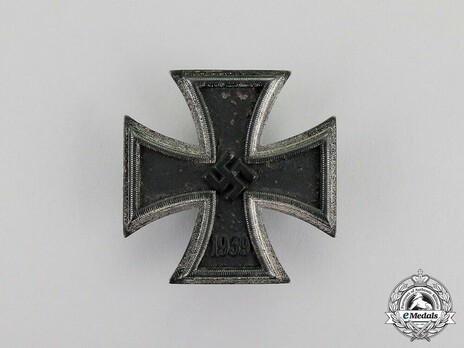
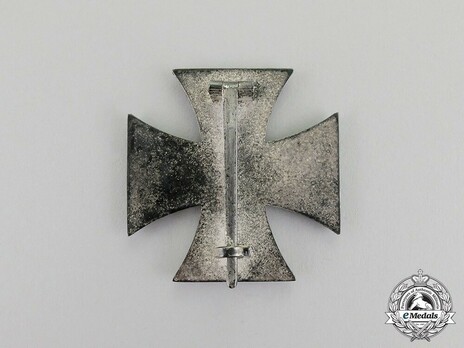
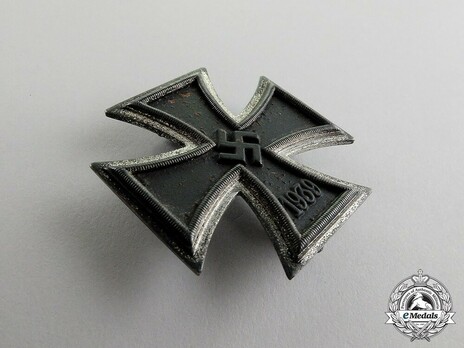
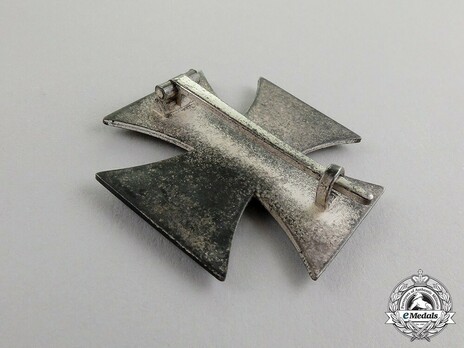
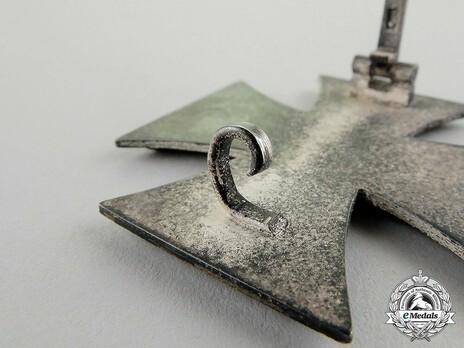
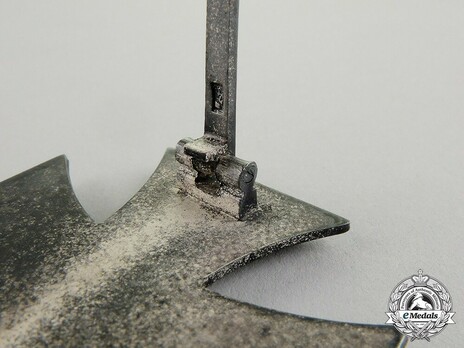
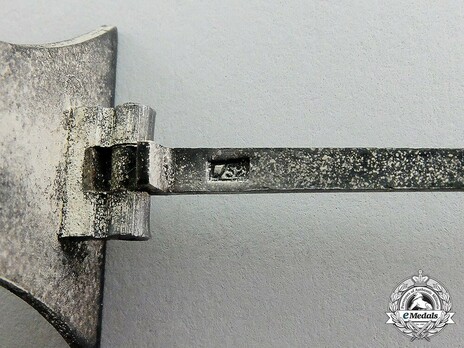
Estimated market value:
An example of a cased “Eisernes Kreuz 1939 1. Klasse”; a cross pattée of multi-piece construction with a blackened iron core (magnetic) within a ribbed border; the obverse with a raised central mobile swastika with the re-institution date “1939” in raised numbering on the lower arm; the reverse with a vertical pinback, a barrel hinge, and a round catch - maker marked "L/52" for "C.F. Zimmermann" manufacture; measuring 44.49 mm x 44.51 mm; weighing 17.8 grams.
This version features the maker’s LDO number. On crosses by C. F. Zimmermann, it can be found on or under the pin, or under the catch, either in combination with the PKZ number or on its own.
The Iron Cross was originally founded in 1813 and was considered Germany’s highest military decoration. On September 1st, 1939, Adolf Hitler renewed the Order of the Iron Cross and instituted the decoration in four grades, II Class Iron Cross, I Class Iron Cross, Knight’s Cross and Grand Cross. The Iron Cross was conferred upon military personnel who rendered outstanding service and demonstrated unwavering bravery in the face of the enemy. In order to receive a higher grade, an individual had to first receive a lower grade.
The Iron Cross I Class was conferred upon military personnel who had previously received the Iron Cross II Class and performed at least three to four acts of additional bravery.
The I Class is manufactured out of three main parts:
1) A nickel-silver frame that holds the black core of the cross.
2) A core that is generally stamped out of steel sheet metal, but may also be composed of brass, zinc, tombak, or other non-magnetic materials. The core is painted with black paint that generally contains phosphorus, calcium, and carbon.
3) A back plate that is generally manufactured out of a non-magnetic material such as nickel-silver. The frame is soldered to the backplate. The back plate features a hinge and a catch.
If recipients of the I Class had the proper documentation, they were permitted to purchase a privately commissioned version of the award. In 1941, the LDO (Leistungsgemeinschaft der Deutschen Ordenshersteller) began to regulate awards that were intended for sale. LDO manufacturers were assigned codes with an “L” prefix, with or without a slash (ex: L or L/). Official award pieces were regulated by the Präsidialkanzlei (PKZ), and manufacturers were given a numerical code without the “L” prefix. The firms that were contracted by the LDO and Präsidialkanzlei used the same die stamps and the awards they produced are indistinguishable beyond the maker’s marks. The maker’s marks are generally centered on the reverse of the cross, although they can also be located by the hinge. Some privately purchased crosses feature the maker’s mark below the catch.
Prior to the LDO gaining control over the production of the Cross, there were numerous versions of the I Class, including a vaulted cross with a hinged pin or screwback, a flat cross with a hinged pin or screwback, and a cloth cross. In 1941, the LDO determined that the only version that would be produced was the flat cross with a pinback or screwback.
The cloth version of the I Class is seldom encountered. This version of the cross was sewn directly onto the recipient’s tunic and was intended for everyday wear. Many of the cloth crosses did not survive the war, as they were not very durable and they were often discarded with the tunics they were sewn to.
The actual number is unknown, but approximately between 750,000 and 1,000,000 were awarded.
Due to the sheer number of different varieties, the versions shown for each maker are just a selection and not a definitive and conclusive list.

Comments
Sign in to comment and reply.
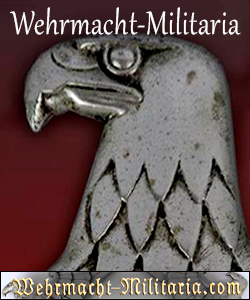
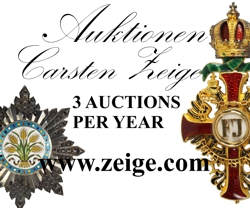
Scroll Top